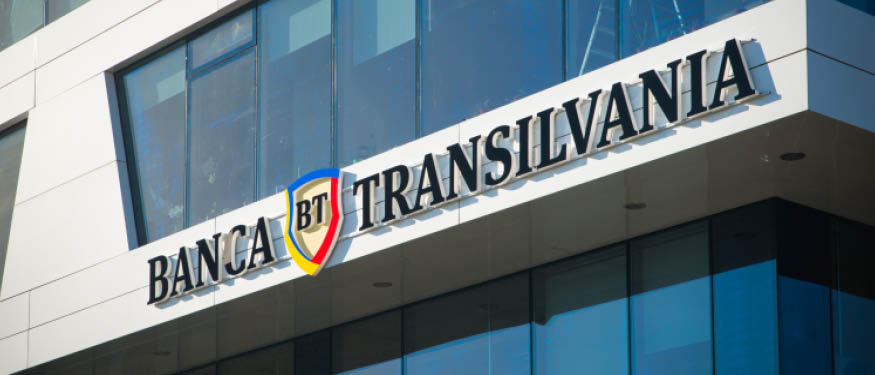Following up on the CJEU's judgment of 9 January 2025, C-416/23, Österreichische Datenschutzbehörde (Demandes excessives), the Austrian Supreme Administrative Court addressed excessive and manifestly unfounded data subject requests to data protection supervisory authorities in six cases (VwGH 29 January 2025, Ra 2023/04/0002; Ra 2022/04/0049; Ro 2023/04/0018; Ro 2022/04/0016; Ro 2022/04/0022; Ra 2020/04/0084). The Austrian Federal Administrative Court added another decision on such requests (BVwG 11 March 2025, W137 2305838-1).
CPK: Tenders for Around PLN 30 Billion This Year
This year, CPK will launch tenders totalling around PLN 30 billion. These will include the construction of roads or construction work for the Warsaw-Lodz railway line. Currently, tenders worth around PLN 4 billion are being conducted for the construction of a long-distance tunnel in Łódź and the creation of a baggage system.
From This Summer, Companies Will Have To Comply With a Number of New Accessibility Requirements
In line with relevant European legislation, from 28 June 2025, new accessibility provisions will apply in Hungary to certain products and services, affecting a wide range of companies.
Czech Republic: The Flexinovela and Its Impact on Employment Documentation
The latest amendment to the Labour Code, the so-called Flexinovela, which will be effective from 1 June 2025, introduces a number of changes that need to be reflected in employment documentation. We focus on the following key areas where we recommend making adjustments:
Why Seek Trademark Protection for Movie Titles or Characters if Copyright Already Applies?
In the entertainment industry, protecting creative assets isn’t just about legal rights—it’s about building a brand. While copyright automatically protects movies and characters as original works, it doesn’t always go far enough. That’s where trademarks step in.
Rights of Foreigners in Case of Employment Termination
When it comes to foreigners residing or planning to reside in the Republic of Serbia, the most common practical issue involves the procedure for issuing a single permit for residence and work in the Republic of Serbia (“Single permit”).
Carbon Footprint Under Scrutiny: Can Banks Track the Environmental Impact of Their Clients' Payments
Given the growing emphasis on sustainability and responsible business practices, obligations in the field of ESG are becoming increasingly significant. The banking sector is emerging as one of the key players in this transformation, with evolving regulatory frameworks influencing its operations.
Short-Term Accommodation Rental Services – Is the EU Approaching the Rental Housing Shortage the Right Way?
Starting from 20 May 2026, short-term accommodation rental services in the EU will be subject to Regulation (EU) 2024/1028 of the European Parliament and of the Council of 11 April 2024 on data collection and sharing relating to short-term accommodation rental services, which also amends Regulation (EU) 2018/1724.
DAC7-Like Reporting Rules – What Will Be Expected from Online Platform Operators?
With the rise of digital platforms and the possibilities that the internet provides for businesses, more and more sellers are able to offer goods and services via these platforms and the internet. In this context, it has been difficult for the Ukrainian tax authorities to trace the flow of goods and services as well as to identify sellers to ensure that these goods and services are duly taxed.
Introduction of a Unified Electronic Employment Record in Bulgaria
Following an amendment in the Bulgarian Labour Code in late 2023 which will enter into force on 1 June 2025, Bulgaria is moving towards the introduction of a unified electronic employment record. This change will affect all Bulgarian employers and their employees and bring an end to the issuance and maintenance of paper-based labour books.
New Law on the Central Register of Beneficial Owners
With the adoption of the Law on the Central Register of Beneficial Owners (“Official Gazette of the RS”, No. 19/2025), which entered into force on 14 March 2025, the legal framework governing this area has undergone significant changes. The application of most provisions is postponed until 15 September 2026, while certain provisions are applicable earlier.
Intellectual Property – A Permitted Monopoly in the Pharmaceutical Industry
As a driving force behind human progress, Intellectual Property represents property arising from the creative, inventive, or innovative activity of a human being. Such activities are protected by permitted monopolies made possible through Intellectual Property Rights. A particular challenge lies in finding a balance between protecting innovation through Intellectual Property Rights and the public interest—especially in industries where this balance plays a significant role, such as the pharmaceutical industry.
Legal Opinions in North Macedonia’s SEPA Credit Transfer Accession
North Macedonia’s formal accession to the Single Euro Payments Area (“SEPA”) marks a significant step toward deeper European financial integration. Following the European Payments Council’s (“EPC”) decision in early 2025 to extend SEPA’s geographical scope to include the Republic of North Macedonia, commercial banks and other payment service providers (“PSPs”) based in the country are now eligible to join the SEPA Credit Transfer (“SCT”) scheme. This milestone will enable citizens and businesses in the Republic of North Macedonia to send and receive euro payments under the same efficient and standardized conditions enjoyed across the SEPA area.
Dealing with Private Equity Interest
What do you do when a private equity fund comes knocking on your door? Ask you out for a dinner to talk about your business?
General Overview and Advantages of Insurance Arbitration
The insurance arbitration system is an alternative dispute resolution mechanism aimed at resolving disputes arising from insurance contracts more quickly and efficiently, without resorting to the courts.
Company Share as a Joint Property of Marital Spouses
One of the most frequently asked questions by our clients during divorce proceedings concerns what exactly belongs to a spouse in relation to a company that was undoubtedly founded using the joint property of the spouses during the marriage, despite the fact that the spouse in question formally and legally does not hold the status of a founder or is not registered as the owner of a share in that company. In other words, the founding contribution amounted to 1 euro, and the company is now worth millions—what rights does each spouse have?
Macedonian Competition Commission Stepping Up Its Enforcement Efforts
In the last few months, the Commission for Protection of Competition of the Republic of North Macedonia (the “Commission”) has stepped up its enforcement efforts of antitrust rules and food supply chain practices in the country.
Is Expropriation a Legally Justified Mechanism for the Protection of the Public Interest?
Expropriation is the process of taking or limiting ownership and other property rights over real estate for the purpose of realizing a public interest as defined by law. In the Republic of North Macedonia, this process is regulated by a specific Law on Expropriation.

































